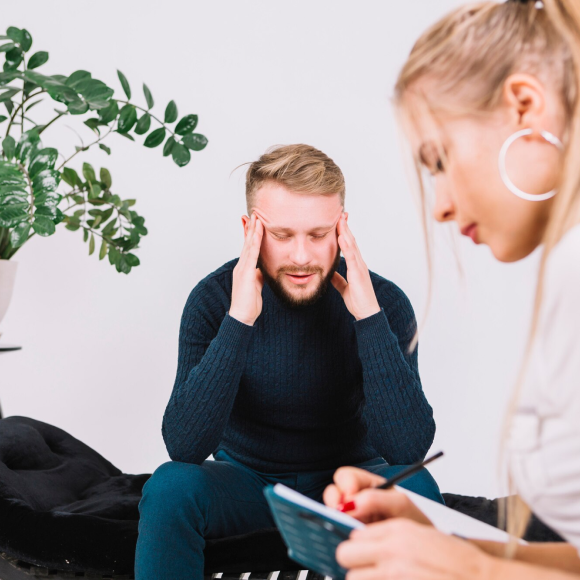BIPOLAR MOOD DISORDER – I

For the diagnosis of BMD, it is necessary to meet the criteria for a manic episode. Which may or may not be preceded by a hypomanic episode or a depressive episode.
Criteria for Manic Episode:
A. An abnormally elevated, expansive or irritable mood and goal directed activity or energy, lasting at least 1 week (Or any duration if hospitalization is necessary) and present most of the day, nearly every day.
B. Presence of 3 or more (4 if the mood is irritable) of the following :
1. Inflated self-esteem or grandiosity.
2. Decreased need for sleep.
3. Over talkativeness or pressure to keep talking.
4. Flight of ideas.
5. Easy distractibility.
6. Hyper-activity.
7. Impulsivity/high risk activities.
C. Symptoms should cause clinically significant distress or impairment of functioning in social, occupational and other important areas of life or may need hospitalization to prevent harm to self or others, or presence of psychotic features.
D. Symptoms should not be because of any substance or any other medical conditions.
Criteria for a hypomanic episode:
A. An abnormally elevated, expansive or irritable mood and goal directed activity or energy, lasting at least 4 consecutive days and present most of the day, nearly every day.
B. Presence of 3 or more (4 if the mood is irritable) of the following :
1. Inflated self-esteem or grandiosity.
2. Decreased need for sleep.
3. Over talkativeness or pressure to keep talking.
4. Flight of ideas.
5. Easy distractibility.
6. Hyper-activity.
7. Impulsivity/high risk activities.
C. Episode is associated with unequivocal change in functioning that is uncharacteristic of the individual when asymptomatic.
D. Disturbance in mood and behavior are noticed by the others.
E. Symptoms are not severe enough to cause marked impairment of functioning in social, occupational and other important areas of life or should not require hospitalization, and absence of psychotic features.
F. Symptoms should not be because of any substance or any other medical conditions.
Criteria for Major Depressive Episode
A. Five or more of the following symptoms have been present during the same 2-week period and represent a change from previous functioning; at least one of the symptoms is either depressed mood or Loss of interest or Pleasure.
• Depressed mood most of the day, nearly everyday
• Marked diminished interest or pleasure
• Weight loss or Weight gain
• Increased (Hypersomnia) or decreased (insomnia) sleep
• Increased or Decreased activities
• Loss of energy or fatigue
• Feeling Worthless or guilty
• Decreased Concentration
• Suicidal thoughts/plan
B. Symptoms should cause clinically significant distress or impairment of functioning in social, occupational and other important areas of life.
C. The symptoms should not be because of the Substance or any other medical condition
Treatments
- Fibromyalgia
- Female Vaginismus
- Conversion Disorder
- Postpartum Depression
- Panic Disorder
- Narcissistic Personality Disorder
- Attention Deficit Hyperactivity Disorder
- Social Anxiety Disorder
- Specific Phobia
- Generalized Anxiety Disorder
- Obsessive-Compulsive Disorder
- Schizophrenia
- Major Depressive Disorder
- Autism
